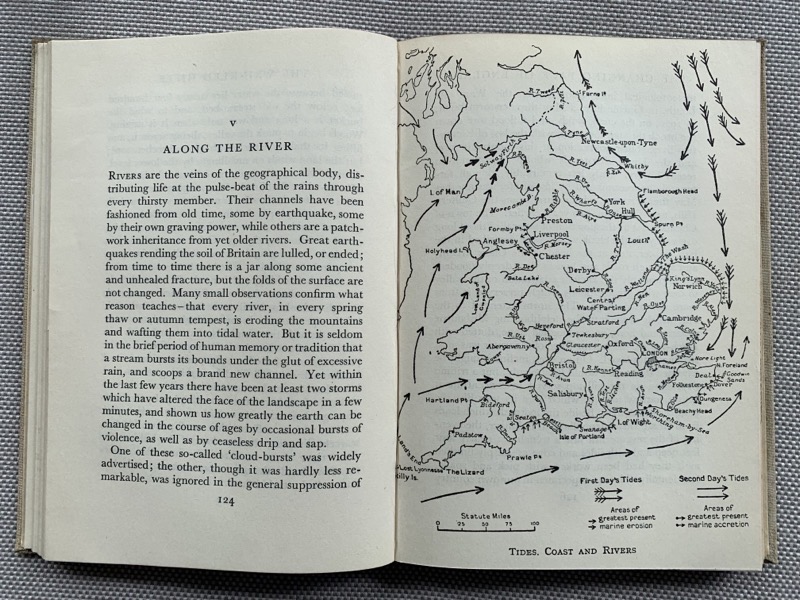Collett's England

One of Auden’s favorite books was Anthony Collett’s The Changing Face of England (1926), and it’s easy to see why — it’s absolutely delightful. Here’s a passage from the chapter seen above:
It is curious to see how floods restore the ancient aspect of the valley landscape, by overflowing the modern chequer-work of fences and hedges, and showing where floods held the field before. Only new houses are flooded when Thames or Medway, or any stream of the populous half-urban valleys, breaks bounds. Bungalows become uninhabitable, swans cruise through rose-beds, but the old farmhouses stand securely dryshod, though scarcely fifty yards from the insurgent water, and perched on so slight a rise as to be invisible until the water came. Old farms and cottages were built with exact knowledge, from experience and tradition, of how far the flood would reach. New houses are plumped down into the channels by which the river disgorges, as though it would never return.
And a luminous passage from another chapter, on Epping Forest:
Yet even in England, woods with a touch of the terror of infinity still survive; and it is one of the strangest things about Epping Forest that, for all its nearness to the East End of London, and its permeation from end to end with the noise of traffic, it yields not only a hundred delightful pictures of the cheerful greenwood, but one or two of the more ancient and formidable type. From the hamlet of Baldwin's Hill, near Loughton -- red omnibuses run close behind it -- there is a view across a narrow valley to a flank of the forest rising, beech beyond beech, hornbeam beyond hornbeam, pollarded and rounded, and innumerable as sheep streaming downhill to water, which is full of the true forest sense. Those who walk in the forest soon learn that the great road to Epping and the eastern counties is never a mile away, and that the air is seldom empty of its rumour. But while the ear tells continually of London, the eye carries us far back into Shakespeare's age, and the old time beyond. Dull streets cease abruptly at the forest's edge; the bell of the muffin-man echoes on autumn afternoons among the beech-boles hacked by spotted woodpeckers. Silence falls a moment, and we hear the deer belling in the glades; it is one step from Bethnal Green into Broceliande.